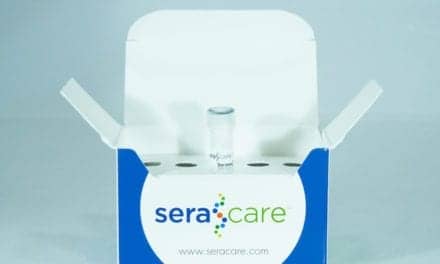Enterprise Analysis Corp (EAC), a healthcare consulting and market research firm, announces the publication of its latest multi-client market study: Molecular Diagnostics Survey 2009: A Report on the Status of the US Market.
This US survey of clinical laboratories covers molecular diagnostic testing performed in hospital-based laboratories, private reference laboratories and public health laboratories. A total of 304 institutions were surveyed representing 415 survey responses. Molecular based testing applications covered in this study include infectious diseases, genetic disorders, cancer testing, cytogenetics, pharmacogenetics, and HLA typing.
The purpose of the survey was to explore topics such as: types of tests performed, annual test volumes and growth, test methods used, sample extraction methods, type of instrumentation used, manufacturer market shares and plans for adding new tests. EAC also compared US findings to the overall world market, key market drivers and technology trends.
EAC estimates more than 52 million molecular diagnostic tests were performed in the US during 2008. Approximately 93% of the total volume is infectious disease testing, while 5% is testing for genetic disorders, such as thrombophilia disorders and cystic fibrosis. The remaining 2% of tests are related to cytogenetics, cancer and HLA typing applications. EAC forecasts that the aggregate test volume (units) will grow 9.4% annually (absent new applications) with the total volume reaching 82 million tests by 2013. Other key findings include:
• Testing for Chlamydia/gonorrhea, HPV, HIV and HCV viral load represents nearly 88% of the total test volume in the U.S. Two of the biggest growth drivers are the continued expansion of cervical screening for HPV infection and anticipated growth in testing for Hospital Acquired Infections (HAIs).
• In the genetic testing segment, an estimated 2.5 million tests were performed in 2008; most for cystic fibrosis and thrombophilia disorders. While existing genetic disorder tests will have slow to moderate growth, the continued discovery of disease related mutations, the gradual emergence of pharmacogenetic and companion diagnostic tests, as well as the trend to Direct-to-Consumer (DTC) genetic testing may radically alter the genetic testing landscape in the future.
• The cancer testing segment, while small in comparison, will experience solid growth with the continued emergence of pharmacogenetic and companion diagnostic tests for use in patient stratification and therapy selection. These tests are also likely to command premium pricing because of their high clinical value.
• Cytogenetic laboratories report strong growth in the use of FISH technology for cancer testing applications. Also, 23% of cytogenetic labs reported use of CGH arrays and another 56% indicated that they plan to adopt use of CGH arrays in the future.
Finally, molecular testing laboratories continue to expand their testing menus with 61% of respondents planning to adopt additional molecular tests in the next 12 months.
Source: Enterprise Analysis Corp




